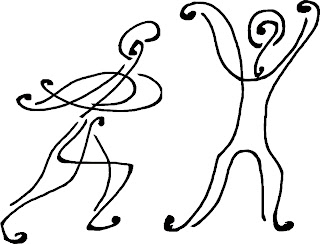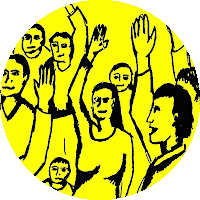 Saturday December 10
Saturday December 10 11am-4pm (includes lunch break)
at the Children's Community School
1212 S. 47th Street, West Philadelphia
facilitated by Morgan Andrews
FREE—Contact “tophilly@gmail.com”
or call 267·282·1057 to register
T.O. Philly presents RIFTS, a one-day workshop about social and political differences that cause schisms between people. Sometimes fueled by age, class, dis/ability, education, employment status, gender, nationality, political affiliation, race, religion, sexuality, or whatever is happening in the world, these rifts can manifest in ways that affect each of us deeply, both cerebrally and tangibly. Whether it's ongoing dynamics within a relationship, heated talk with family around the dinner table, or polarized viewpoints that divide a nation, the roots of these rifts have much in common. In this workshop we'll physicalize our experiences by using the language of theatre to dig up these roots in order to build the world we want.
In the morning session, we'll build our skills as a group by playing theatre games, getting to know each other, and opening up this topic of conversation. After lunch, we'll go deeper by unpacking specific stories, reconstructing them onstage, and then reconfiguring them into what we wish they could be. Our aim is to leave with some tools for tackling these issues in everyday life.
This workshop is FREE and runs from 11am till 4pm with a one-hour break for lunch around 12:30. No prior theatre experience is necessary, all life experiences welcome. To register, send an email to "tophilly@gmail.com" or leave a message at 267-282-1057.


















